
The First Forum of Analytical Centers of Central Asia and the Republic of Korea was held today, July 30, in Tashkent. Turkmen experts were represented by the head and research fellows of the Center for Strategic Studies of the Institute of International Relations of the Ministry of Foreign Affairs.
Before the start of the forum, a Korean dance group with traditional drums performed, the growing rhythm of which set an energetic tone for the entire event.
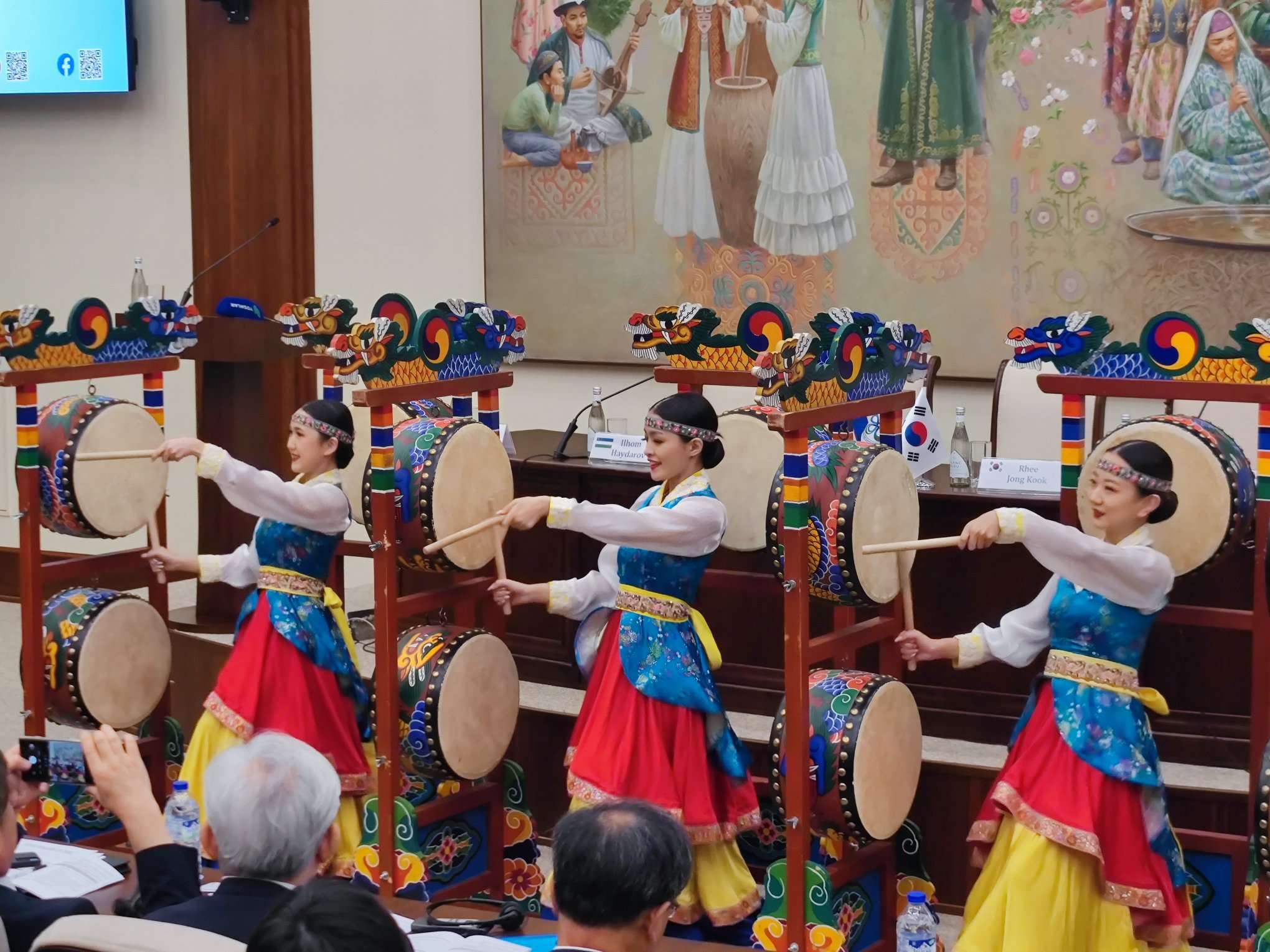
And indeed, despite the fact that the meeting was being held for the first time with such a composition and the festive mood brought by the artists, it was not of an inaugural nature, but of a concrete and working nature. And one of the key objectives of the forum was to develop new approaches to the development of multilateral cooperation in light of preparations for the first Summit of the "Central Asia + Republic of Korea" format, which is scheduled to be held in 2025 in Seoul.
The foremost priority of analysts from the six countries was to prepare recommendations and proposals for the 17th meeting of the heads of foreign affairs agencies of the dialogue states, which will be held in November 2024 in the Korean capital.
Ashgabat hosted the previous, 16th ministerial, on November 1, 2023, where important joint decisions were approved, including those providing for the creation of a separate mechanism for interaction between the “think tanks” of Central Asia and the Republic of Korea.
And so the kick-off event brought together about 100 delegates in Tashkent, who, as messengers of future diplomatic missions, conducted tactical orientation based on a deep and comprehensive analysis of events, facts, regional and global trends in order to identify in a “brainstorming” optimal counter routes for movement in priority areas of cooperation.
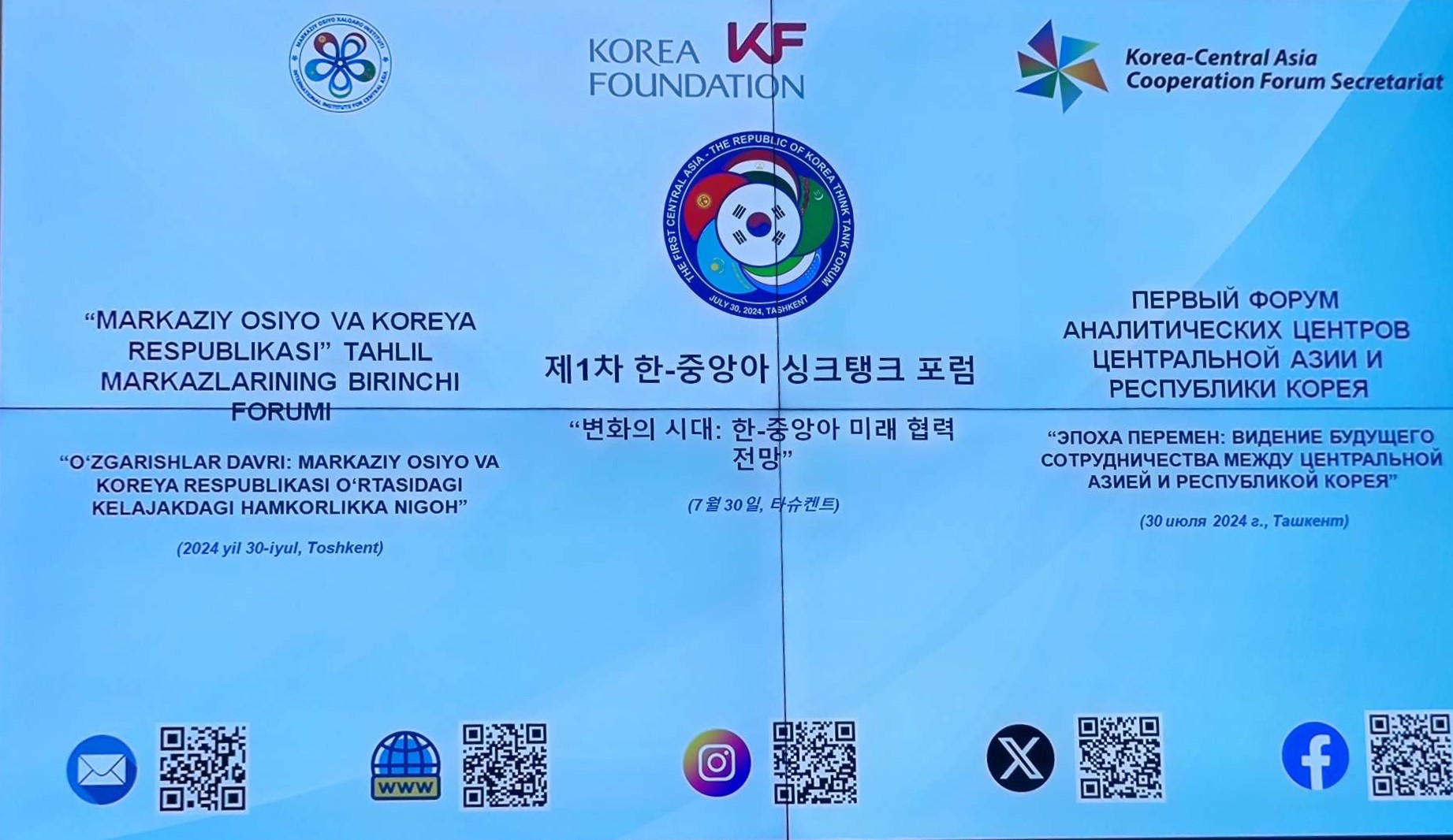
The main tracks discussed were industrial and digital development, transport and logistics, energy and green development, agriculture, climate and resource conservation, education and science. The potential agenda, of course, can be much broader, therefore, establishing and strengthening ties between expert and analytical communities should facilitate the expansion of contacts and exchanges between representatives of government agencies, business communities, and public organizations of Central Asia and the Republic of Korea.
This is the general concept of the meeting organized by the International Institute of Central Asia (IICA, Tashkent) and the Korea Foundation, the governing body of the Secretariat of the Korea-Central Asia Cooperation Forum.
The Korean side was also represented by representatives of more than a dozen research institutes specializing in such areas as international economic policy, energy economics, transport, as well as the Korea International Cooperation Agency (KOICA), the Korea Trade Promotion Corporation (KOTRA), the Export-Import Bank of Korea, known as Eximbank (KEXIM), etc.
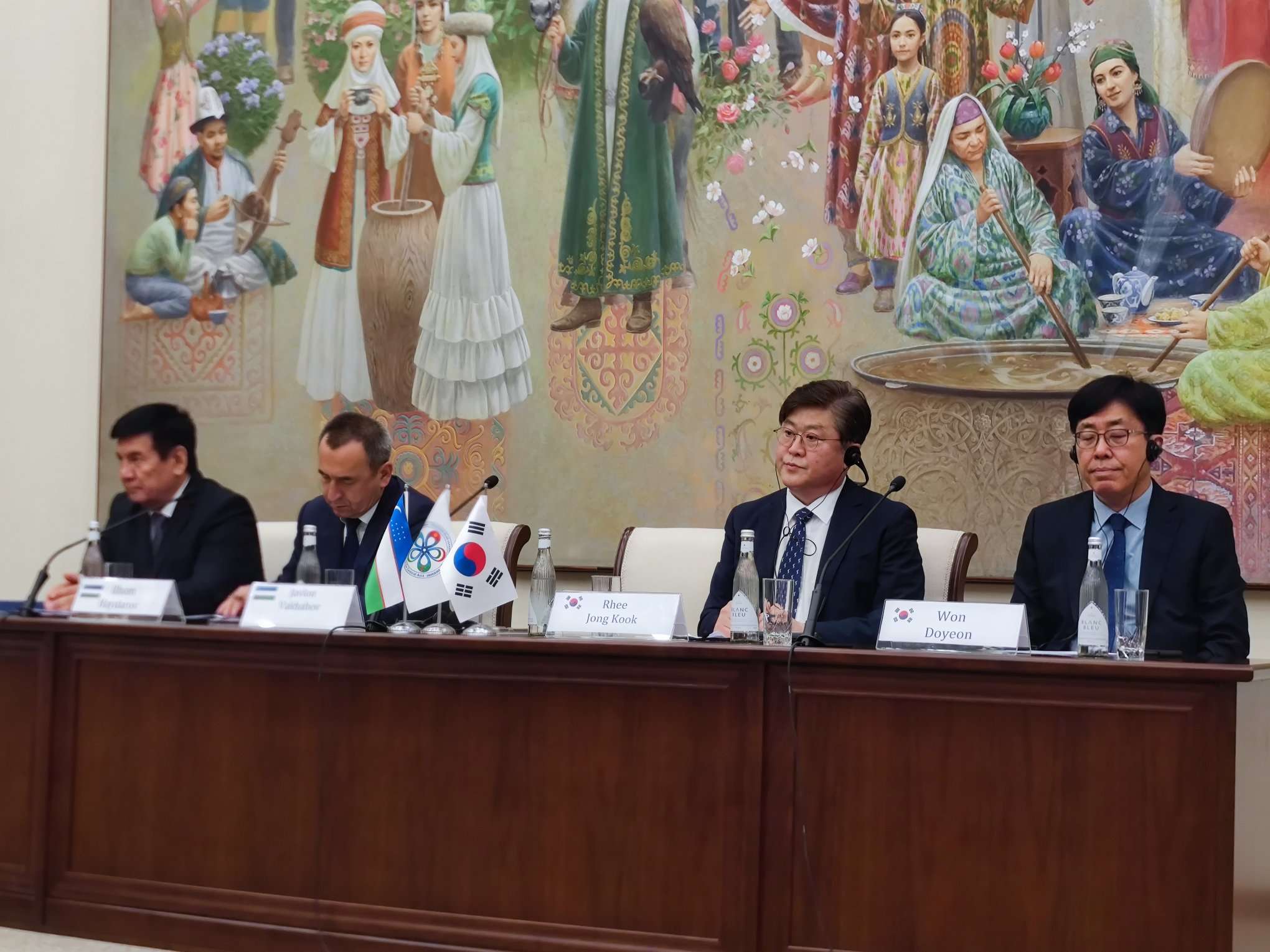
The main participants from the Central Asian countries were IICA and the Institute for Strategic and Interregional Studies under the President of the Republic of Uzbekistan, the Institute for Strategic Studies under the President of the Republic of Kazakhstan, the National Institute for Strategic Initiatives under the President of the Kyrgyz Republic, the Center for Strategic Studies under the President of the Republic of Tajikistan, and the Center for Strategic Studies of the Institute of International Relations of the Ministry of Foreign Affairs of Turkmenistan.
The directors of the analytical centers spoke at the session “Mutually Beneficial Partnership between Korea and Central Asia 2.0 for New Geopolitical Dynamics: Vision of the Future and Key Priorities.” In the context of this topic, head of the Center for Strategic Studies of the Institute of International Relations of the Ministry of Foreign Affairs of Turkmenistan, Shiri Shiriev, called the recent visit of head of the Republic of Korea Yun Seok-yul to Ashgabat historic.
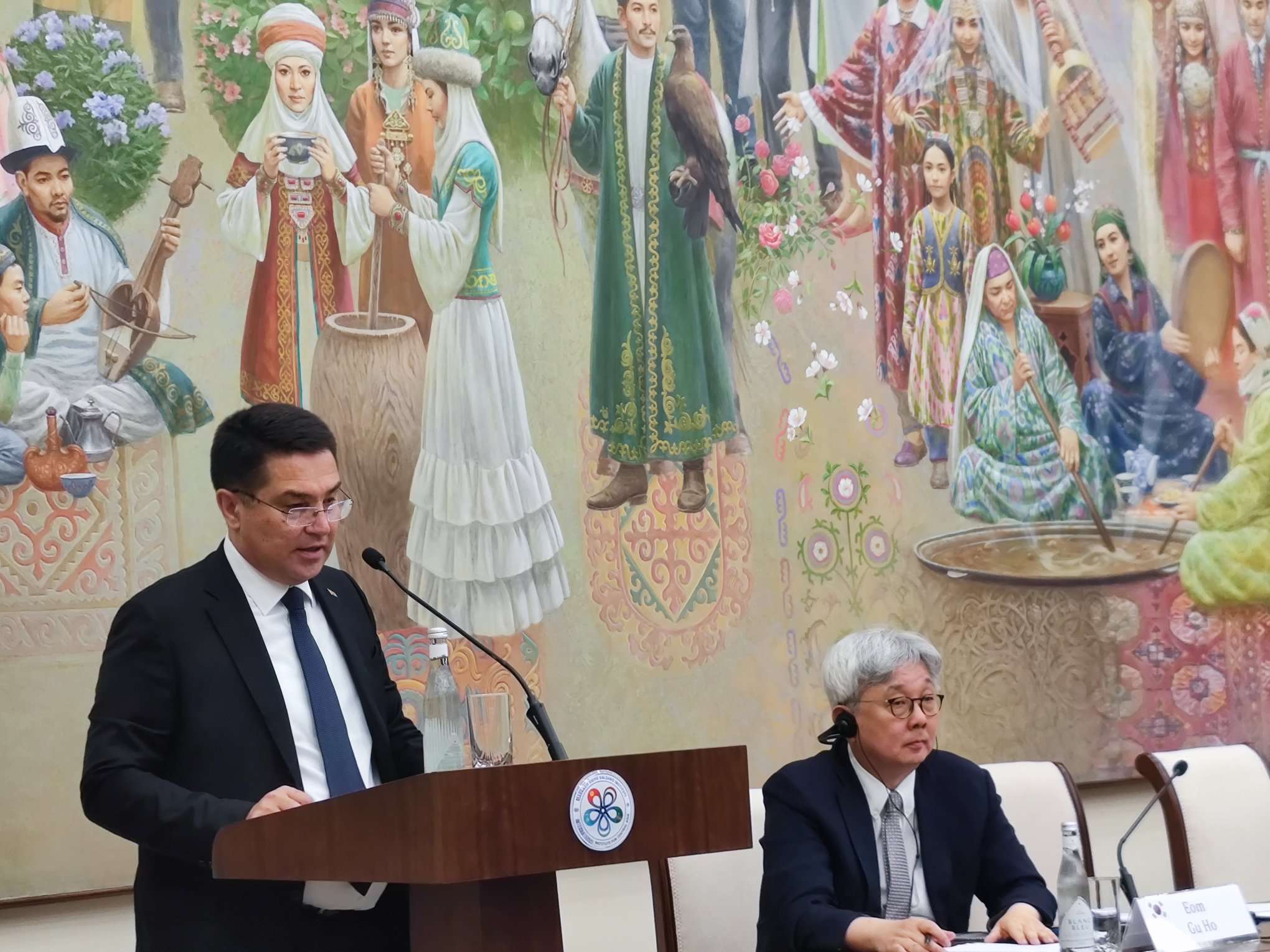
Noting that Turkmenistan and the Republic of Korea are reliable partners in the implementation of high industrial and manufacturing technologies, he highlighted the participation of Korean companies in our country's oil and gas projects, in the development of shipbuilding and the concept of a "smart city". Shiriyev recalled the proposals of the Turkmen side voiced during the Ashgabat meeting of the heads of the Ministries of Foreign Affairs of the "Central Asia-Republic of Korea" format, which focused on the potential of young people. In particular, they discussed holding annual advanced training courses for young diplomats of Central Asia in Seoul under the auspices of KOICA, creating such platforms as a youth festival and an exhibition of startup projects.
Senior researcher of the Center for Strategic Studies of the Institute of International Relations of the Ministry of Foreign Affairs of Turkmenistan Bekdurdy Amansaryev spoke at a session on the topic "Reconstruction of the global value chain and economic security: mutually beneficial cooperation in the field of energy and essential minerals."
In June of this year, National Leader of the Turkmen people, Chairman of the Khalk Maslakhaty Gurbanguly Berdimuhamedov, speaking in Ashgabat at the Turkmen-Korean business forum, reported on projects worth a total of 11 billion dollars, implemented in the country by South Korean companies, the speaker said.
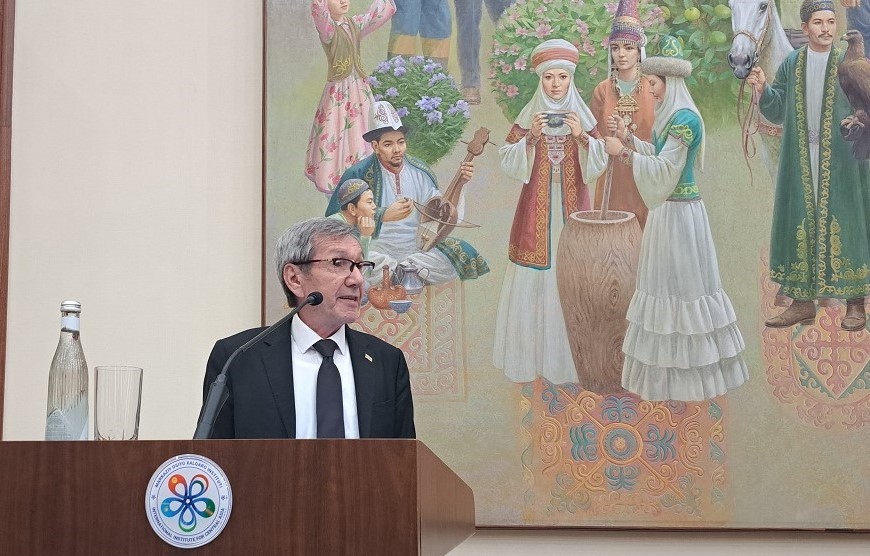
These funds are directed to the construction of gas-related facilities, the design of industrial complexes, as well as the acquisition of vehicles. Among them are projects for the construction of power plants in Turkmenistan worth 5 billion dollars.
Last month, South Korea's Hyundai Engineering signed agreements to build a new natural gas processing plant for desulfurization in eastern Turkmenistan, as well as to modernize the Kiyanly polymer plant in the west of the country. According to the Framework Agreement with the Turkmengas State Concern, Hyundai Engineering will build a second desulfurization unit at the Galkynys gas field. For the South Korean company, this will be the second such facility - the first unit was built in 2009. Along with this, Daewoo Engineering & Construction plans to build two carbamide and ammonia plants in Kiyanly. Thus, the main element of Turkmen-Korean cooperation is joint work on projects not only in the gas industry, but also in the gas chemical industry, where such large companies as LG, TOYO, Hyundai and others work.
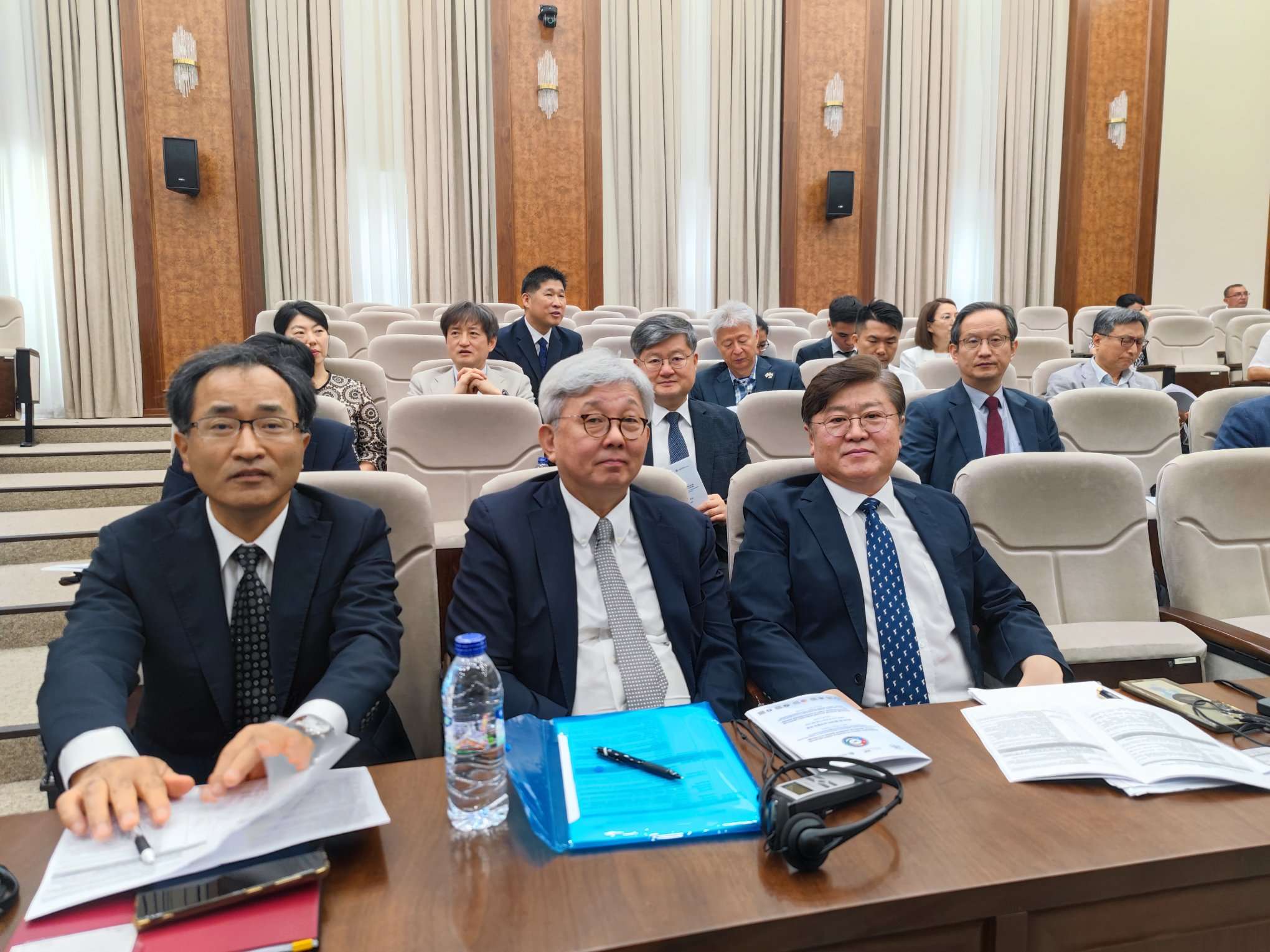
Another priority area of the policy pursued by the leadership of Turkmenistan is interaction with the world's leading companies in the field of renewable energy sources, Amansaryev emphasized. Thus, one of the new areas of bilateral and multilateral cooperation is hydrogen energy. The Republic of Korea, as is known, is actively developing hydrogen technologies and is ready to share its developments with Turkmenistan.
This area includes the production, storage and use of hydrogen as an environmentally friendly source of energy, which is in line with global trends to reduce the carbon footprint and transition to sustainable energy systems.
It was also reported that at present, specialists from Turkmenistan, on the instructions of head of state Serdar Berdimuhamedov, are starting to prepare a Plan to strengthen international cooperation in the field of renewable energy sources for 2025-2030.
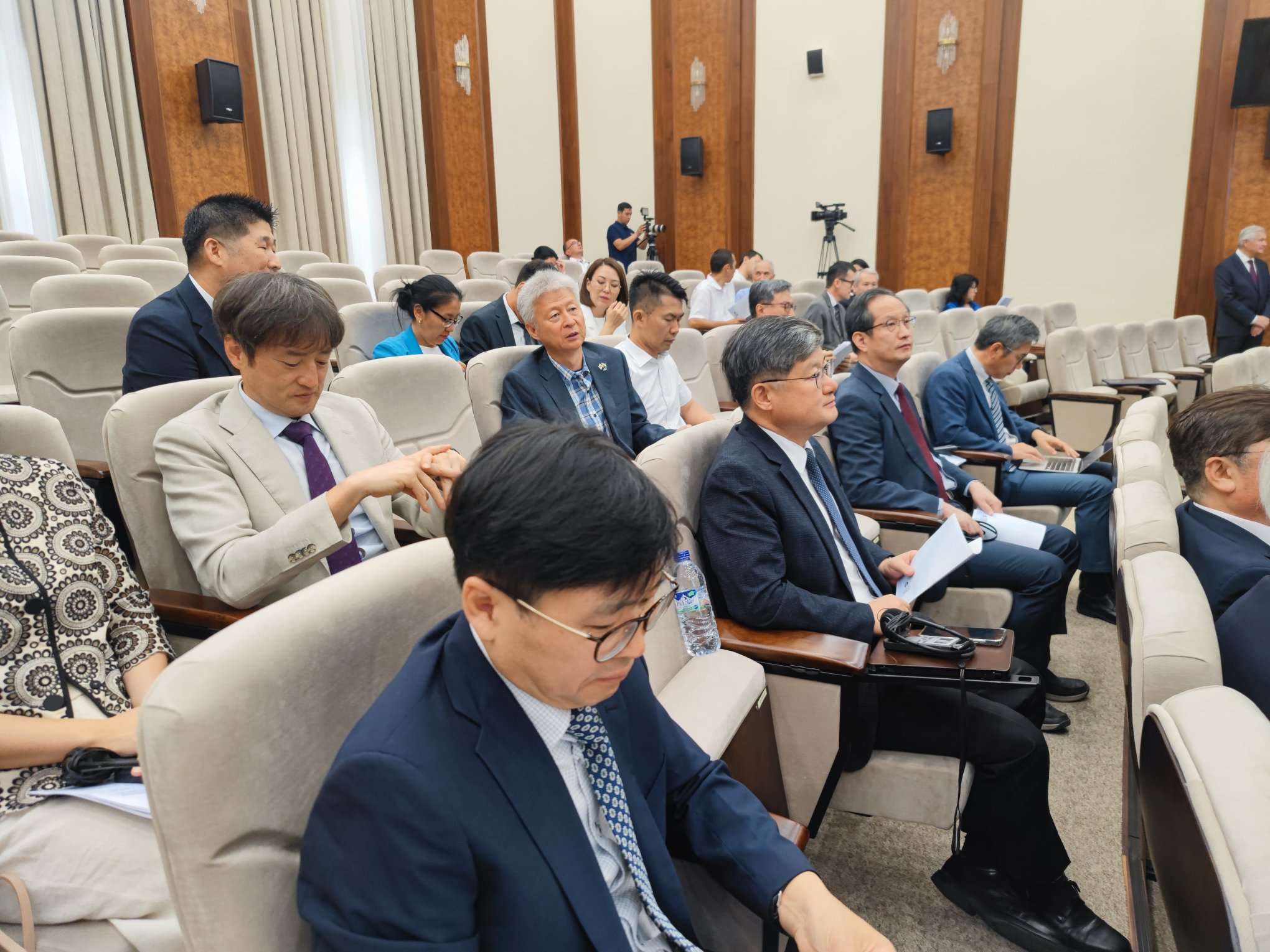
In addition, Bekdurdy Amansaryev drew the attention of the forum participants to large-scale transport projects of Turkmenistan, where the use of Korean experience and technologies would be mutually beneficial.
Currently, Koryo Shipbuilding Industry Technology, together with Turkmen colleagues, is building two multi-purpose vessels. Given the major role of maritime transport in the development of trade operations in the Caspian Sea, the potential of the Republic of Korea as a maritime power may be in demand in Turkmenistan in this area. And these are not all the significant prospects that open up with the emergence of cooperation between Turkmenistan and South Korea to a new level.
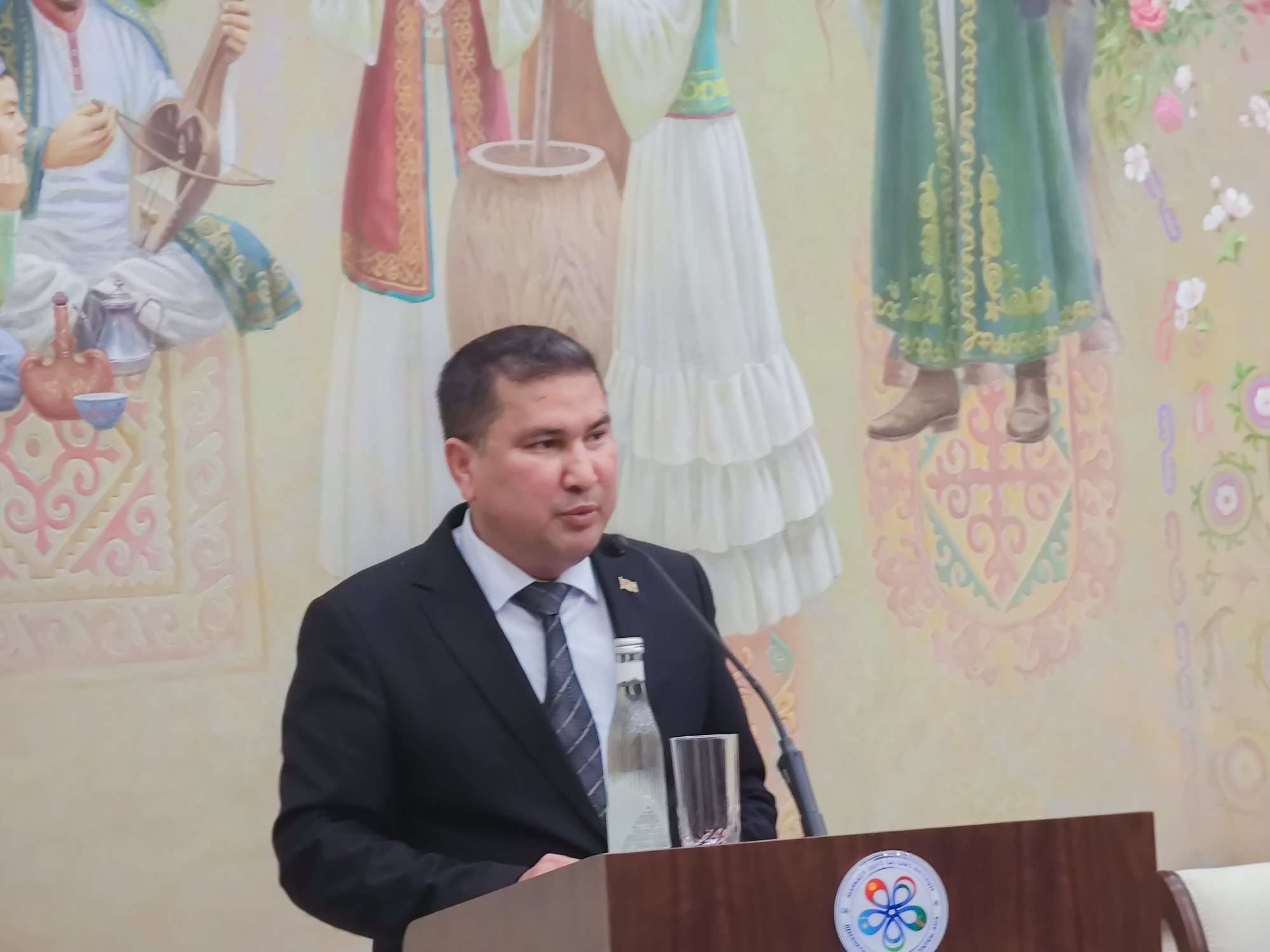
Another representative of the Center for Strategic Studies of the IIR MFA, Dovletmurad Mamedov, joined the Turkmen delegation. He spoke at the session on the topic “Strategic interaction in the era of technological hegemony: joint approaches to ICT and education in the field of artificial intelligence”, where he spoke about the tasks of our country in terms of digitalization and highlighted current areas for scientific and technical cooperation with Korean companies.
ORIENT news
